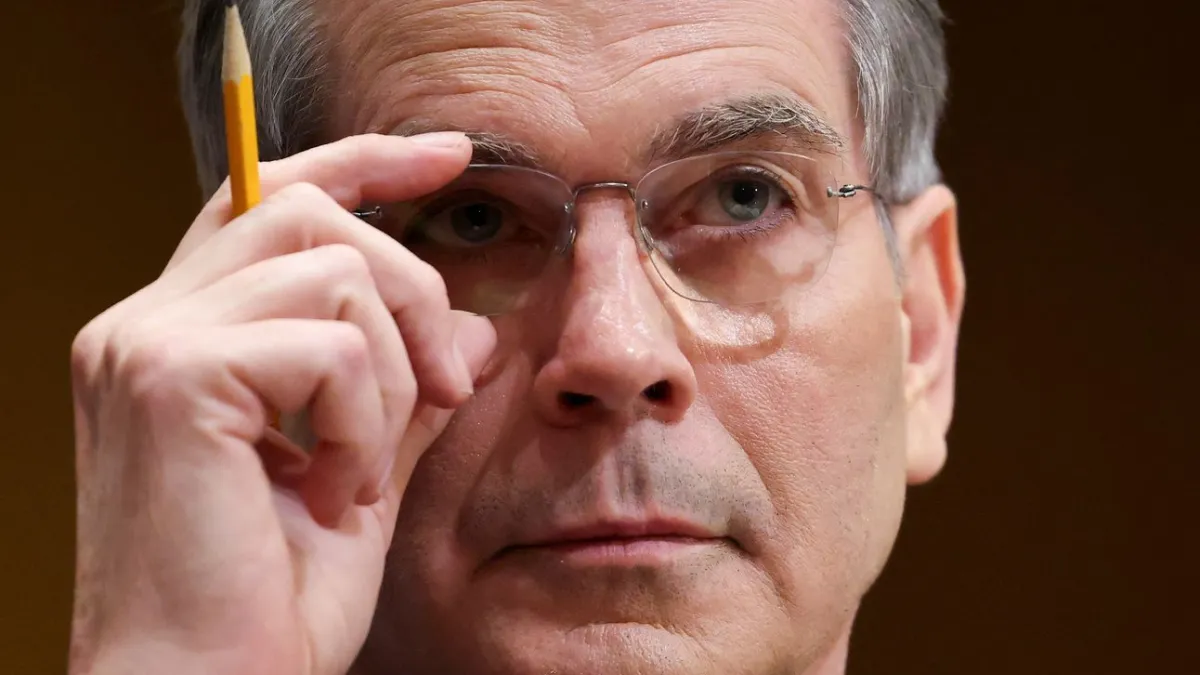
Treasury Secretary Scott Bessent told a group of investors Tuesday that the punishing trade war between the U.S. and China cannot be sustained, and he expects it to ease in the near future.
Speaking at a closed-door investor summit hosted by JPMorgan Chase in Washington, D.C., Bessent reportedly said that “there will be a de-escalation” in President Trump’s tariff battle in the “very near future,” which “should give the world, the markets, a sigh of relief.”
Bessent said the current level of tariffs — 145% on Chinese goods coming into the U.S. and 125% on U.S. goods coming into China — amounts to a two-way embargo that is severely depressing trade between the countries. But neither nation “thinks the status quo is sustainable,” Bessent said per the Associated Press. He added that the goal for the U.S. is to reset the terms of production and trade rather than to decouple from the Chinese economy entirely.
At the same time, it may be a while before the two sides can reach a final agreement acceptable to both. “I do say China is going to be a slog in terms of the negotiations,” Bessent said. A comprehensive deal could take two to three years, Bessent suggested, and no formal talks have started.
White House Press Secretary Karoline Leavitt echoed Bessent’s comments Tuesday, telling reporters that the administration is “doing very well” regarding a “potential trade deal with China.” Trump is “setting the stage for a deal with China,” she added, “and the ball is moving in the right direction.”
Leavitt declined to say, however, whether Trump had spoken directly to China's President Xi Jinping, and there are questions about just how much dialogue is occurring between the two nations at any level. China warned other countries Tuesday about making trade deals with the U.S. that would harm the manufacturing giant. “China firmly opposes any party reaching a deal at the expense of China’s interests,” the Commerce Ministry said in a statement.
Separately, Politico reported that the White House is making progress on trade deals with Japan and India, but those agreements will likely being far from complete, with many difficult details left to be dealt with in a process that could take months.
Investors were happy with even a hint of positive news on tariffs, sending stocks sharply higher on Wall Street, with the S&P 500 rising 2.5% and the Dow Jones Industrial Average jumping 2.6%, or 1,016 points.